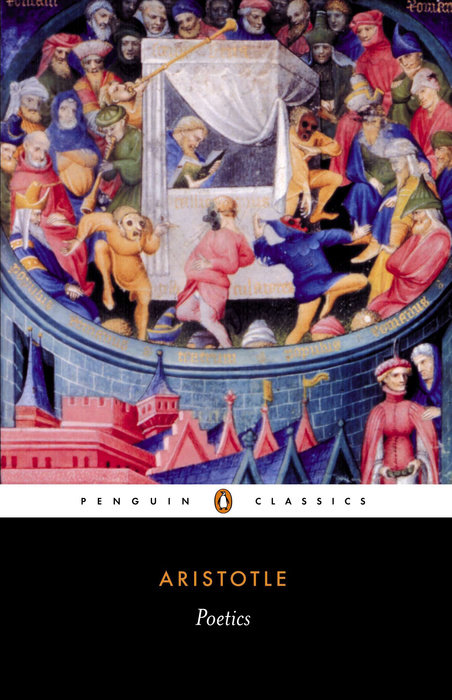
Poetics
Book Description
Unlock the secrets of storytelling that have captivated minds for centuries. Aristotle's 'Poetics' delves deep into the art of drama and poetry, unveiling the mechanics behind tragedy, comedy, and epic narratives. With razor-sharp insights, it explores the profound impact of plot, character, and emotion, dissecting what makes stories resonate within the human soul. Every page pulses with passion, revealing how catharsis ignites transformation and how themes of fate, morality, and desire clash in powerful ways. What timeless truths about art and life lie hidden in the shadows of Greece’s theatrical tradition?
Quick Book Summary
Aristotle's "Poetics" stands as one of the foundational texts in Western literary criticism, analyzing the elements that constitute effective storytelling, especially in tragedy and epic poetry. Aristotle meticulously examines the structure and purpose of drama, emphasizing the primacy of plot, the significance of character, and the role of language, thought, and spectacle. Central to his analysis is the idea of catharsis—evoking pity and fear to cleanse the audience emotionally. He contrasts tragedy with epic and comedy, exploring their distinct impacts. Aristotle's insights reveal the mechanics underlying emotional engagement, thematic resonance, and ethical considerations in storytelling, offering enduring principles for understanding fiction, art, and human experience.
Summary of Key Ideas
Table of Contents
Essential Elements of Tragedy
Aristotle opens "Poetics" by categorizing poetry and drama based on their means, objects, and manner of imitation (mimesis). He identifies tragedy as the highest form, intended to represent not merely events, but universal truths about human nature, fate, and morality. According to Aristotle, poetry—unlike history—depicts what could or ought to be, rather than just what happened. He distinguishes the purpose of different genres: tragedy elicits pity and fear, comedy depicts flawed but relatable characters, and epic poetry blends elements of both, typically in a narrative form.
The Function and Structure of Plot
At the heart of Aristotle’s treatise is his analysis of plot, which he deems the "soul" of tragedy. He insists that an effective plot must have unity, coherence, and a logical sequence, moving from a beginning to a middle and an end. The most powerful plots contain elements of reversal and recognition, leading to a climactic moment of discovery. The arrangement of incidents should evoke a sense of inevitability yet retain surprises, intensifying the emotional response. Aristotle also introduces the notion of the "tragic hero," a protagonist whose downfall is brought about by a combination of fate and personal flaw (hamartia).
Role of Character and Thought
Characters play a crucial, though secondary, role in tragedy. Aristotle notes that the best characters are consistent, relatable, and complex—not just good but possessing a mixture of virtues and flaws that make their journey compelling. Thought, or the reasoning behind decisions and dialogues, is significant; through characters’ actions and speeches, the audience perceives underlying themes and ethical dilemmas. Language and diction—the use of rhythm, metaphors, and expressive speech—contribute to the emotional effect and the believability of the drama, further engaging the audience’s intellect and feelings.
Catharsis and Emotional Response
A key innovation in "Poetics" is the concept of catharsis, the process through which tragedy cleanses or purges the emotions of pity and fear. Aristotle argues that by participating emotionally in the fates of characters, audiences are moved to a deeper understanding and emotional balance. The mechanics of catharsis tie directly to the careful selection and arrangement of plot events, the believability of characters, and the resonance of overarching themes. This purgation, Aristotle suggests, is essential for the psychological and ethical impact of art.
Comparing Genres: Tragedy, Epic, Comedy
Finally, Aristotle contrasts tragedy with related genres such as epic poetry and comedy. While epics often feature broader scopes, longer timeframes, and more elaborate narratives, both share structural requirements regarding unity and coherence. Comedy, on the other hand, aims to amuse and often centers on lower-class characters and less severe situations. Aristotle's careful differentiation of genres clarifies their unique capacities to reflect and shape human experience, cementing the "Poetics" as a critical foundation for literary analysis and artistic creation.
Download This Summary
Get a free PDF of this summary instantly — no email required.





